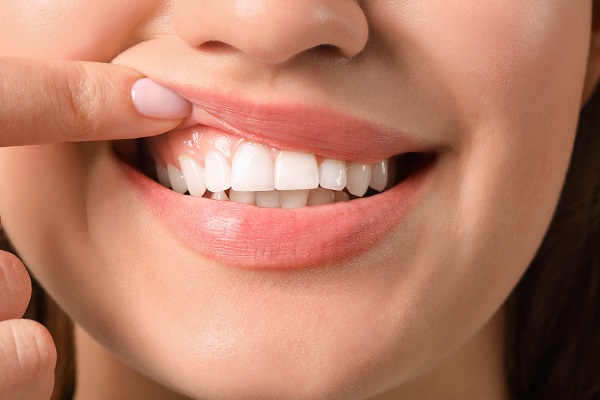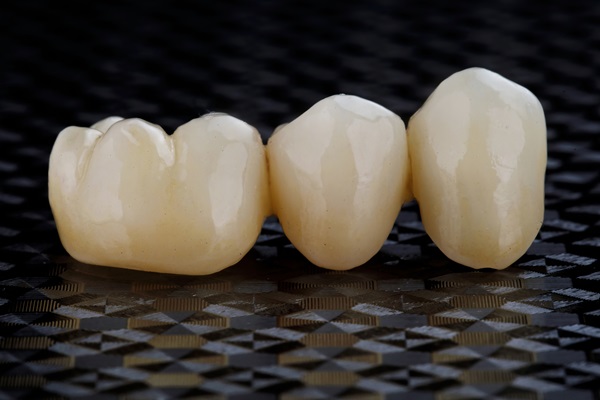Can Gum Disease Be Cured?

If your dentist has diagnosed you with gum disease, you should seek treatment right away. If you do not address this problem quickly, it can become increasingly more serious. The faster you identify this condition, the more likely you are to treat it effectively. With the right intervention at the right time, you can reverse its effects. However, if it continues to develop, the consequences will be irreversible.
An overview of gum disease
At its early stages, this condition is called gingivitis. This is inflammation of the gums as a result of bacteria-causing plaque. Gums will bleed with this condition, usually during brushing but sometimes while the individual eats. Gingivitis can progress to periodontal disease. At this point, the gums begin to pull away from the teeth and form pockets. Infection can then grow in these spaces, affecting other systems of the body.
Signs and symptoms of the disease
A person will usually know they have gum disease by recognizing various clues. Along with inflammation and bleeding, there may be redness in the gums. People with periodontal disease often have bad breath because of the bacteria, which release toxins. Gums will also shrink, and the teeth can become sensitive. Another sign of the condition is that the teeth may become loose or shift.
Treating gingivitis
It is critical to treat gum disease before it turns into periodontitis. Periodontal disease is not reversible, but gingivitis is. The dentist will first start by thoroughly cleaning the gums. Using dental tools, the dentist or hygienist will scrape away plaque and tartar from below the gumline. The dentist may also do something called root planning, which is the smoothing of the surfaces of the tooth roots.
Patients with gingivitis should also be more diligent about brushing and flossing. Brushing at least twice a day and flossing daily can help turn back this condition. People of all ages should also visit the dentist every six months. If the patient shows signs of gum disease, more frequent visits may be necessary.
More intense methods
While periodontal disease is not curable, it is controllable. Other treatments can help with this along with reversing gingivitis. These include antibiotics, which can kill the bacteria. This medication can come in pill or gel form. The dentist may even choose to do a gum graft or flap surgery.
Long-term effects
Gum disease can have severe consequences. If a dentist does not begin to treat it, the patient could suffer bone loss and tooth loss. The bacteria can get into the bloodstream and move throughout the body. People with this condition can have cardiovascular troubles. Stroked and heart attacks are not uncommon in patients with periodontal disease.
Nothing to put off or ignore
Tooth decay is not the only problem you should worry about when it comes to your oral health. Gum disease can be a concern for your teeth and for other areas of your body. Talk to your dentist today about treating this condition. Do something about it before it is too late to cure.
Request an appointment here: https://www.soalsmiles.com or call South Alabama Smiles at (251) 206-6339 for an appointment in our Mobile office.
Check out what others are saying about our dental services on Yelp: Gum Disease in Mobile, AL.
Related Posts
Gum disease, also known as periodontal disease, poses a critical threat to your oral health when it is left untreated. While this oral health condition may seem mild, it can progress rapidly. Not only can gum disease affect your oral health, it can impact your overall health and quality of life. Understanding the consequences of…
Preventive dentistry deals with dental procedures to prevent dental issues, and it is critical for anybody who wants to keep their natural teeth for the rest of their life. Dentists used to spend most of their time treating dental issues rather than preventing them.Due to people's overly busy schedules, it is easy to put off…
A dental bridge is often an important tooth-replacement option when one or more teeth are missing in the same area. Gaps in the smile affect chewing, speech, and overall oral health. Over time, missing teeth can also affect jaw alignment and place extra stress on the remaining teeth. Understanding how a bridge works helps patients…
Dental bonding is a simple and effective way to make immediate improvements to the smile by covering stains or fixing small chips, cracks, and gaps in the teeth, providing immediate improvement. The process is painless and quick and does not require major changes to the natural teeth. Those looking for an easy and affordable way…


